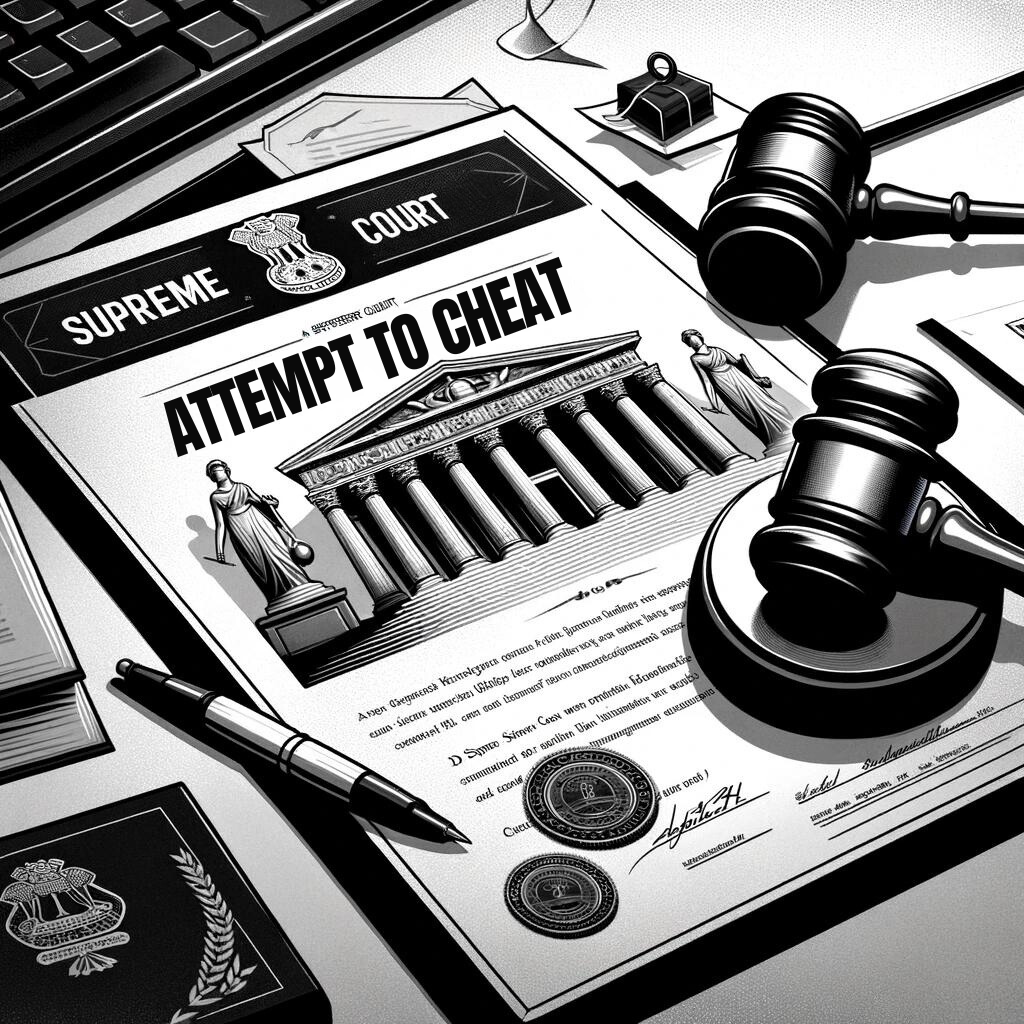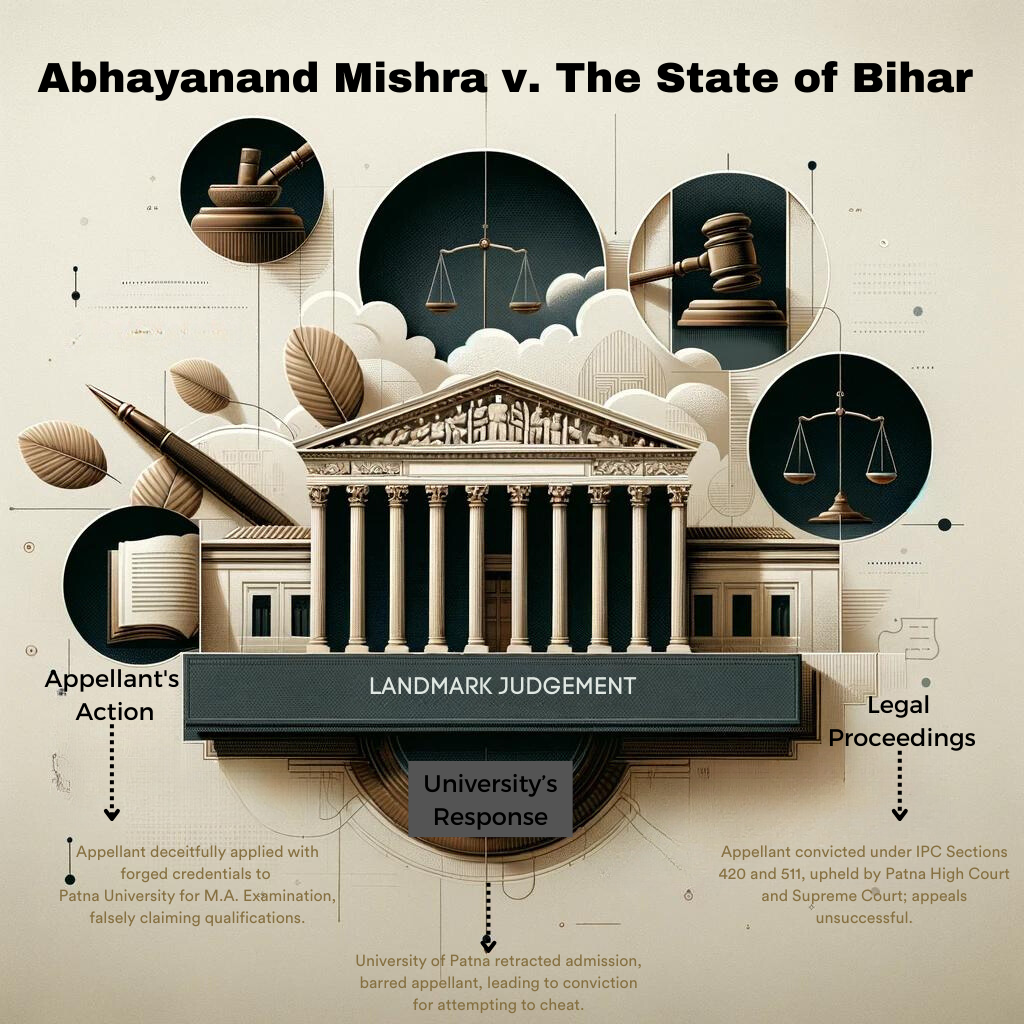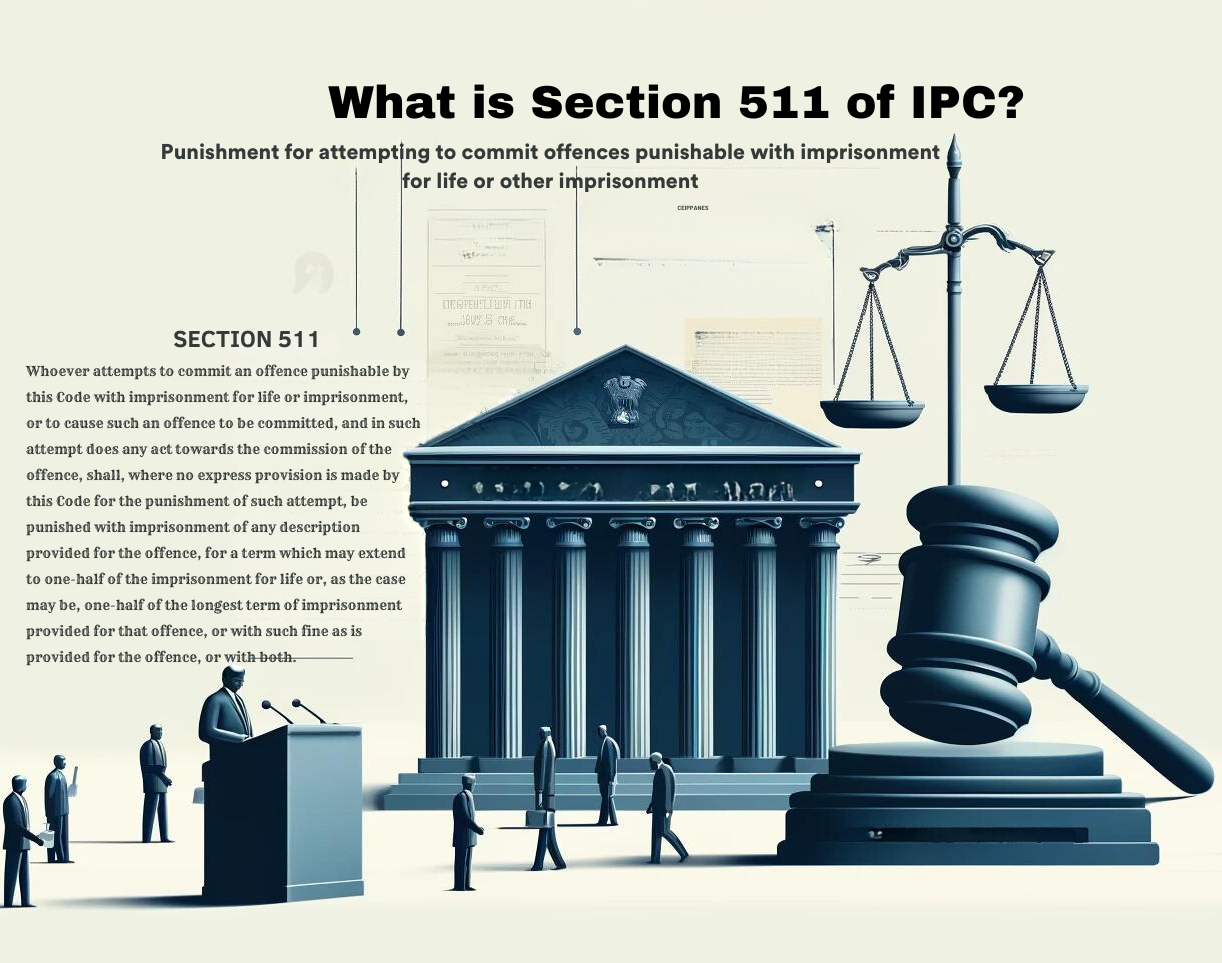
Introduction
In a landmark judgment that clarifies the ambit of attempt under Indian law, the Supreme Court elaborated on the essence of attempting to commit a crime, particularly under Section 511 of the Indian Penal Code, 1860 (IPC). This case revolves around an individual who, with forged documents, sought permission to appear as a private candidate for an M.A. Examination from the University of Patna, only to be later unveiled that neither his academic credentials nor his professional status were genuine. The crux of this case lies in determining whether his actions constituted merely a preparation or an attempt to cheat under Sections 420 and 511 of the IPC. This editorial aims to dissect the nuances of this case, providing a comprehensive understanding of judiciary aspirants.
Also read The Nanavati Case 1959.
Facts
Application to University
The appellant deceitfully applied to the University of Patna to appear as a private candidate for the M.A. Examination in English, falsely claiming a B.A. degree and a teaching position. He attached forged certificates to support his application, misleading the University into accepting his candidacy and issuing an admission card.
University’s Response
Upon discovering the appellant’s fraudulent claims and the forged nature of the attached certificates, the University of Patna retracted the admission card and barred him from future examinations. This led to a police investigation, culminating in the appellant’s conviction for attempting to cheat the University.
Legal Proceedings
The legal journey saw the appellant convicted under Section 420 read with Section 511 of the IPC, a decision upheld by the Patna High Court and, subsequently, the Supreme Court. The appellant contested the valuation of the admission card and the extent of his preparatory actions but to no avail.

Issues Involved
The crux of the case before the Supreme Court revolved around the appellant’s conviction under Sections 420 and 511 of the Indian Penal Code (IPC) for attempting to cheat the University of Patna. The core issue delved into whether actions taken by the appellant, which did not culminate in the ultimate commission of the crime due to external interventions, could still be construed as an attempt to cheat. This case required the Court to interpret the thin line between preparation and attempt in the context of committing a crime, particularly under the ambit of Section 511 IPC, which deals with attempts to commit offenses.
The Court was tasked with determining if the appellant’s actions—fabricating documents to deceive the University into granting him an examination admission card—constituted a tangible attempt towards cheating, even though the fraud was discovered before he could utilize the admission card for appearing in the examination. The decision hinged on understanding the nature of the admission card as ‘property’ and whether the appellant’s actions went beyond mere preparation, thereby constituting a direct attempt to cheat.

Observation
Supreme Court’s Analysis
The Supreme Court meticulously analyzed the appellant’s actions, affirming that the preparation phase concluded upon dispatching the fraudulent application. This act, aiming to deceive the university into issuing an admission card, constituted an attempt to cheat, thereby falling squarely within the ambit of Section 511 IPC.
Decision on Admission Card
The Court decisively deemed the admission card a ‘Property’, highlighting its intrinsic value in the academic domain. This classification played a pivotal role in affirming the conviction for cheating, as the appellant’s actions had induced the university to issue this ‘property’ under pretenses.
Conclusion
The Supreme Court’s verdict underscored the principle that an attempt to commit an offense commences with an act, not necessarily culminating in the act’s completion. By this logic, the appellant’s actions warranted conviction under Section 420 read with Section 511 of the IPC, reinforcing the legal sanctity against deceptive practices.
Notes

Section 420 of the IPC delineates the offense of cheating and dishonestly inducing delivery of property, punishable with imprisonment and a fine. Section 511 of the IPC addresses punishment for attempting to commit offenses, underscoring the legal framework’s intolerance for preparatory acts toward committing a crime. This case vividly illustrates the judiciary’s stance on attempts to cheat, serving as a critical precedent for aspiring judiciary candidates to comprehend the nuanced application of the law.

